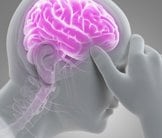Know your stroke risk and how to reduce it
Kevin Sirmons, MD, NRP
Emergency Medicine
CentraCare Health - Monticello

Strokes and Your Brain Health
Someone has a stroke every 40 seconds and its estimated that 80 percent of strokes are preventable. View our infographic detailing how to reduce your stroke risk.
Download PDF Now
In the previous blog post, it was discussed what are the signs of a stroke and why it’s important to get someone showing these symptoms to an emergency room. Today, we’ll focus on how to determine your chances of having a stroke and healthy things you can do to lessen your risk.
Know Your Risk
Anyone at any age can have a stroke.Your likelihood can increase depending on your age, sex, ethnic background and genetics. Consider the following:
- Your chance of having a stroke doubles every 10 years after age 55.
- More females die from strokes than males. Women are also at an increased risk of having a stroke while pregnant or taking an oral contraceptive.
- Your health history can make you more likely to have a stroke. Factors that can increase it include having:
- a previous stroke or Transient Ischemic Attack (TIA)
- high or uncontrolled blood pressure
- high cholesterol
- heart disease
- diabetes (especially if uncontrolled)
- unhealthy diet
- obesity
- a lack of physical activity
- excessive alcohol intake
- other genetic conditions, like Sickle Cell Disease
- African and Latin American heritage can make you more susceptible to strokes. In part, this is due to higher rates of high blood pressure, diabetes, and obesity within these genetic heritages.
What You Can Do
Stop smoking. Exercise. Actively monitor your weight. These are some things you can do to lower your risk of having a stroke - and should not be a surprise. You may not be aware of some of these:
- Limiting alcohol consumption. Drinking too much can raise your blood pressure, which increases your stroke risk. It’s recommended that men have no more than two drinks per day and women no more than one. A drink is defined as 12 ounces of beer, 5 ounces of wine, or one shot of liquor.
- Eating a Mediterranean diet. Recent studies have shown that people who eat a Mediterranean diet are significantly less likely to suffer a stroke. Some parts of the Mediterranean diet involve eating more fruits and vegetables, whole grains, fish and seafood (while limiting red meat), low fat dairy products, and using olive or canola oil — instead of butter.
- Reducing secondhand smoke exposure. The Centers of Disease Control and Prevention (CDC) estimates that nonsmokers who breathe secondhand smoke at home or at work have a 20-30 percent higher risk of stroke. So if you smoke, you should consider quitting. Not just for how it will improve your health, but for your children, friends and loved ones. Smoking inside the home multiplies the exposure to smoke particulates, which in part causes lung cancers in children and loved ones who you share your home with.
More Online: